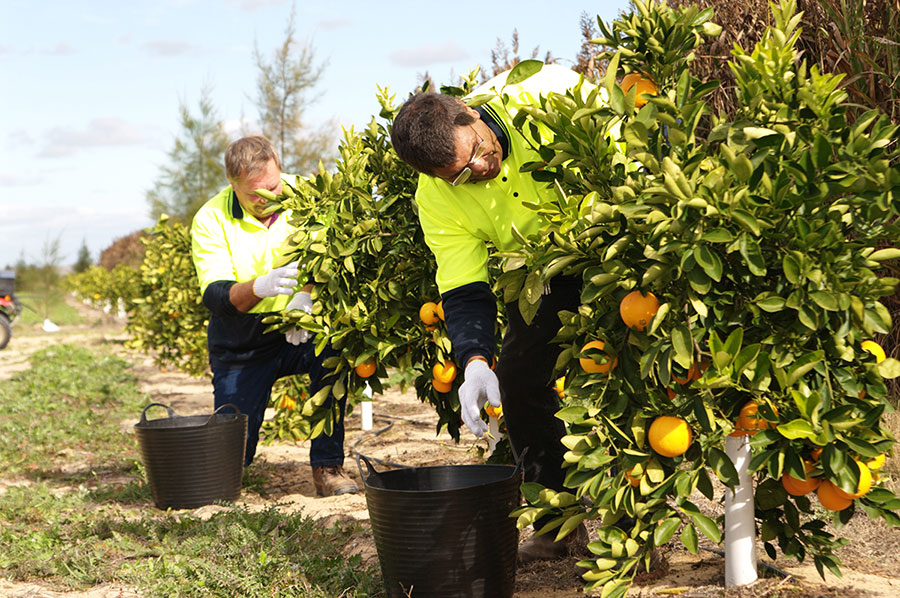Biosecurity
Australian Levy
Plant Health Australia is the lead national coordinating body for plant health in Australia. They work in partnership with industry, governments, researchers and others, providing national coordination to improve biosecurity policy and practice across Australia’s plant industries and to build capacity to respond to plant pest emergencies.
A levy of three cents for every tonne of citrus fruit sold in Australia goes toward funding citrus industry initiatives of Plant Health Australia. These initiatives include the Citrus Industry Biosecurity Plan which provides a framework for biosecurity risk mitigation measures in the industry, and the Citrus Orchard Biosecurity Manual, designed to assist in the implementation of measures recommended in the biosecurity plan. Visit the Plant Health Australia website to download copies of the plan and manual.
Western Australian Fee For Service
On November 17th the APC Commission, with approval from the Minister, approved the commencement of Fee for Service (FFS) for biosecurity. This FFS was effective from 1 January 2015.
The aim of the biosecurity fee for service is to provide funds for activities to prevent an incursion, including monitoring for potential threats, as well as to assist with activities to deal with any incursions of pests into WA. It is specific for pests that are in the eastern states but not present in WA.
The Bio Security Fee for Service on citrus fruit is as follows:
Fruit
Citrus – Oranges, Lemons, Mandarins, Grapefruit, other citrus (fresh fruit) $0.022 per kilogram.
This charge comprises of $0.002 per kilogram for biosecurity services and $0.02 per kilogram for all other services.
Processing Fruit
All citrus (processing fruit) $0.011 per kilogram.
This charge comprises of $0.001 per kilogram for biosecurity services and $0.01 per kilogram for all other services.
Protection of WA Citrus Fruit
Hortguard is a coordinated and cooperative strategic approach between industry and government for the protection of Western Australia’s horticulture industry to minimise risks to production and markets.
HortGuard deals with threats that are exotic to Western Australia but found elsewhere in Australia. It also works to increase industry awareness of exotic plant pests in general.
Quarantine WA actively protects Western Australia’s agriculture, environment and lifestyle by conducting inspections for quarantine risk material at entry points for private travellers and commercial clients arriving from interstate.
Visit the Quarantine WA website for information on importing goods from interstate, exporting fresh produce, other plant material or machinery interstate and transporting fresh produce within Western Australia.
Important Information on Biosecurity and Threats to WA Citrus
- Biosecurity Manual for Citrus Producers
- Citrus Canker
- Citrus Canker Poster
- Huanglongbing
- Glassy-Winged Sharpshooter
- Exotic Thrips
- Exotic Fruit Flies
- Citrus Variegated Chlorosis
- Citrus Tristeza Virus (Mandarin Stem-Pitting Strain)
- Citrus Stubborn Disease
- Citrus Fruit Borer
- Citrus Gall Wasp
- More information can be found here: Citrus Gall Wasp Western Australia
- Asiatic & African Citrus Psyllid
- CITRUS Farm Biosecurity Brochure
- CITRUS Farm Biosecurity Sign
Neglected Orchards
The owners of neglected orchards are often unaware that poor maintenance causes plant stress which allows the build-up of pests and diseases. This can affect healthy trees in nearby backyards and more importantly commercial orchards. Exotic pests and diseases may also go undetected in a neglected orchard for some time and could develop into a major threat to the industry.
Under the Biosecurity and Agriculture Management Act 2007 officers of the Department of Agriculture and Food WA can inspect orchards. Owners can be directed to rectify any pest and disease management issues identified in poorly maintained and diseased orchards. The ultimate remedial action that can be ordered is the removal of trees.
If you suspect an orchard is being neglected you must report it to WA Citrus. A formal letter will then be sent from WA Citrus to inspectors at the Department of Agriculture and Food. You will be informed of the outcome of inspections and any action taken by WA Citrus.

